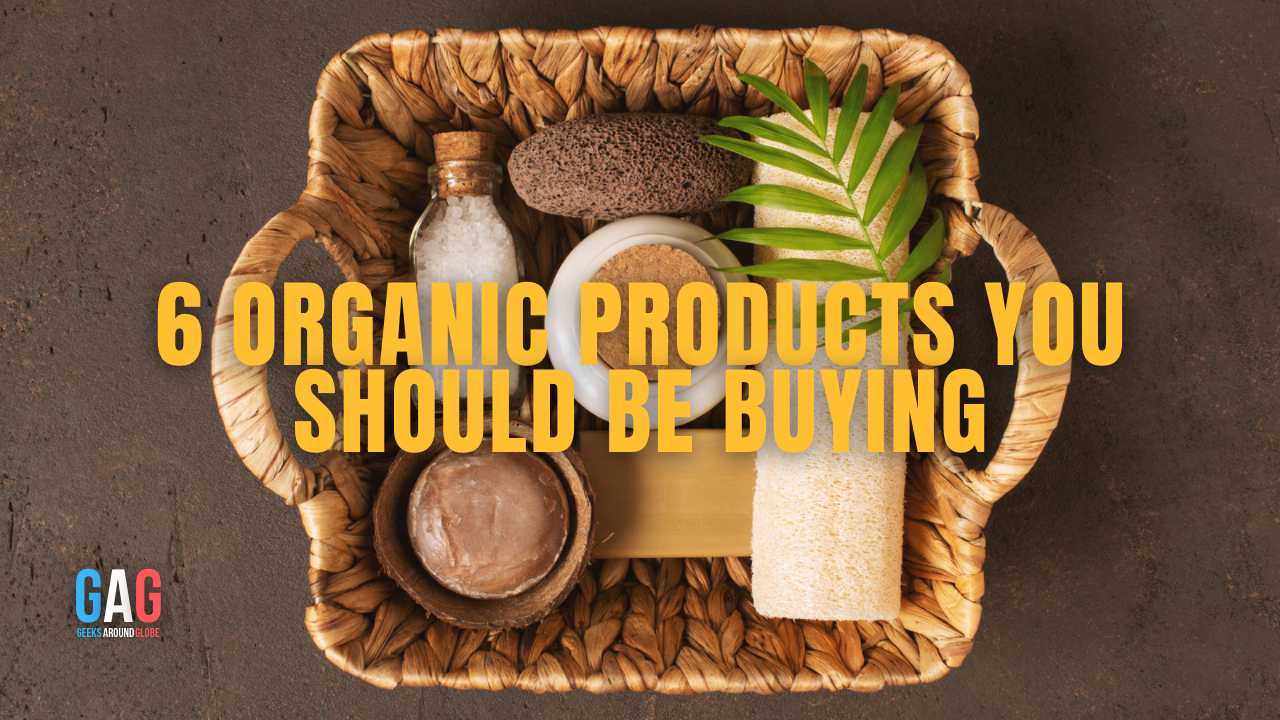Organic products have been a hot topic in recent years. The definition of organic varies based on who you ask, but the consensus is that an organic product does not contain synthetic materials or artificial ingredients. This means that it’s made with natural substances and produced without the use of harmful chemicals, pesticides, herbicides, genetically modified organisms (GMOs), radiation-based methods like irradiation; bioengineering; sewage sludge; or ionizing radiation to make food radioactive via nuclear fallout.
Organic products are becoming more available, but there’s still a lot of confusion surrounding them. Organic Bunny founder Amanda Jo put together this list to break down some common misconceptions about organic foods and help you make the best choices at your local supermarket or farmer’s market.
Organic Produce
Organic produce is healthier for you than conventionally grown fruits and vegetables because it contains less pesticide residue due to its production process. Choosing organic will reduce exposure to harmful chemicals that have been linked with human health problems like cancer, autism, ADHD, allergies, reproductive issues, neurological disorders, etc… – The USDA has strict guidelines on what can be labeled as “organic.” If something says “100% organic,” 100% of all ingredients must be certified organic. If something is labeled “organic,” then 95% of the ingredients must be certified organic.
Organic Milk
Organic milk doesn’t contain artificial growth hormones or antibiotics that are given to conventionally raised dairy cattle. These chemicals have been linked with an increased risk of cancer and other diseases, including asthma, reproductive problems, etc. Non-GMO means there were no genetically modified organisms used during production. GMOs can lead to changes in DNA structure, resulting in foods containing allergens (antibiotics) and toxins (pesticides). It has also been hypothesized that GMO consumption could alter gut bacteria levels due to the lack of beneficial microbes found normally on non-GMO diets.
Organic Bread Grains
Organic bread grains aren’t treated with synthetic pesticides or fertilizers, so they don’t have residue from these chemicals. They are making organic bread and grains more nutritious for you by giving your body a break from synthetic products that it isn’t used to ingesting regularly.
Organic Meat
Organic meat is raised without antibiotics, growth hormones, or animal by-products, which means the animals were generally given better living conditions. With no antibiotics being administered throughout their lifetimes, there will be less antibiotic resistance in our food supply. With higher quality standards of care taken during the production process, the result will taste better due to the humane treatment of livestock.
Organic Facial Products
When it comes to organic facial products, the best thing you can do is look for items that have a seal from either NSF International or USDA Organic. These companies have strict guidelines on what they consider “organic” and will not allow any product with less than 95% organic ingredients in their facilities. This means that you can trust the label when it says “organic” or “all-natural.” If a product claims to be organic but doesn’t have one of these seals, then chances are the ingredients were derived from non-certified sources, and any organization monitors nothing about how they were made.
If you’re looking for an organic facial cleanser with certified organic ingredients, try Simple Truth’s Organic Face Wash. It contains aloe vera leaf juice known for its anti-inflammatory properties and helps prevent acne breakouts, while chamomile flower water calms skin irritations like eczema. The formula also uses glycerin to remove excess oil without over-drying your face so blemishes will clear up quickly. Organic skincare is important because many conventional beauty brands are chock-full of harsh chemicals that could irritate sensitive skin or even cause dermatitis. When it comes to organic facial products, the best thing you can do is look for items that have a seal from either NSF International or USDA Organic.
As you can see, various organic products on the market will help your body. In addition to these six items, be sure to check out our blog for more helpful information about how to live sustainably and organically!







